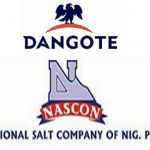Feature/OPED
Letter to New Administrator of Presidential Amnesty Programme Dennis Otuaro

By Jerome-Mario Utomi
Going by torrents of positive reactions and optimistic commentaries that trailed your recent appointment as the Administrator of the Presidential Amnesty Programme (PAP), it is evident that President Bola Ahmed Tinubu spoke the minds of Niger Deltans by providing an answer to protracted demand as head of PAP, a development-minded fellow who understands the yearnings of the people, respected by the people and lives around the creeks.
Again, aside from the above defining requirements, if someone unfamiliar with the region and its dynamics is asked to evaluate these commentaries that flow from your appointment, such a fellow may hastily and peripherally conclude that the orchestrated reaction was elicited by your intimidating academic feat which includes but not limited to; possession of a Doctorate Degree (PhD) in Comparative Politics and Development Studies from the University of Benin, which he pursued from 2016-2019. Master of Public Administration and another MSc in International Relations from the same university, earned in 2008-2009 and 2007-2008, respectively well as a Bachelor of Science in Political Science Education from Delta State University, obtained from 2001 to 2005, among others.
However, a more critical appraisal of your endeavours further signposts that your influence goes beyond academic achievements to include the fact that during the height of the crisis in the region, you were reportedly in the Creeks, advocating for a better deal for the people and possessed a rich and comprehensive understanding of the Niger Delta Region.
The tone of congratulatory messages by different groups further gives credence to this assertion.
Beginning with a statement by the Ijaw Youth Council IYC, Western Zone, which spans Delta, Edo and Ondo States, it applauded President Tinubu for the appointment which it described as “a breath of fresh air”, noting that President Bola Tinubu took a “bold step” in appointing Dr. Dennis Otuaro as the Coordinator of the Presidential Amnesty Programme (PAP). The statement which was signed by Dr Doubra Okotete and Omoghomi Olu-Derimon, Chairman and Secretary respectively, the group said the appointment has brought great relief to Niger Deltans, Otuaro being the first Delta Ijaw to be appointed into the PAP office’.
In a similar vein, the youths in Arogbo Ijaw ethnic nationality in Ondo state, under the banner of the apex youth council observed that the appointment serves at the pleasure of the youths in the region, as Mr President, Bola Ahmed Tinubu, has promptly replaced the former interim Administrator of the programme, who had been due for substitution regarding some anomalies in the office.
Expressing confidence that the new PAP coordinator, who is a product of the Niger Delta struggle, will move the programme forward, the IYC assured of its readiness to work with him to address the problems bedevilling the region.
The above comments signify two things; one, your appointment has again shown clearly that ordinary calculation can be upturned by extraordinary personalities. Secondly, the ancient argument of whether circumstance or personality shapes events is settled in favour of the latter.
Also working in your favour in my view is the established familiarity with the oil-rich Niger Delta Region and profound commitment to improving the region and the lives of its people which has not only made you a key figure but a man with a grand vision for the region.
Beyond these acclamations, this piece however, believed and still believes that if truly a people-purposed leadership is what you seek, if accelerated economy of Niger Delta youths is your goal, if promoting peace, supporting skill developments among youths of the region are your dreams and forms your objectives, then, you need to study history, study the actions of your predecessors, to see how they conducted themselves and to discover the reasons for their victories or their defeats so that you can avoid the later and imitate the former.
Regardless of what others may say, leadership knowledge is gained by probing the past and using the knowledge derived to tackle the present. Or, analysing the present and using the information gained to predict the future.
Notably, flagrant disregard for public opinions, ignoring advice/admonitions from stakeholders and groups, and paying no attention to political and socioeconomic concerns expressed by the people are but some vivid examples that set the stage for failures in the past. It is equally painfully true that PAP has witnessed protracted leadership that ‘enjoyed’ a penchant for ignoring advice, warning signals, and inability to read the political handwriting on the wall.
Also prominent among the reasons for the past failures was the barefaced illusion on the part of some leaders that they were more patriotic than the other stakeholders and a disproportionate view of appointment as a personal right. This baffling disposition, more often than not prepares the ground for exercising power and responsibility, not as a trust for public good but as an opportunity for private gains and therefore, must be avoided by your administration to record resounding success.
Acting as a boost to the above fuelling failures is the excruciating poverty and starvation in the region which drives more people into the ranks of the beggars, whose desperate struggle for bread renders them insensitive to all feelings of decency and self-respect and in some cases makes many to applaud and endorse policies harmful to their interests.
Without a shadow of a doubt, it is a fact that youths in Delta, Edo and Ondo States and more acknowledge you as an astute administrator and resource manager who fits the bill, it is also a statement of fact that others described your appointment as a round peg in a round hole of which the entire Niger Delta youths are happy with the development.
The above declarations and endorsements notwithstanding, the appointment in the objective view of this piece could be likened to the proverbial new invention which usually comes with both opportunities and challenges.
Essentially, it is an open secret that the Niger Delta region is a big geographical location with complex challenges. Also troubling which you are aware is that expectations from your new office are always at an all-time high. This point partially explains why you must accord the office the needed attention that it deserves.
Also unique is the hidden consciousness that these expectations are coming from teaming supporters with varying shades of interest.
Take, as an illustration, a group recently wrote; that we are sending our voices and still congratulating you strongly from Canada and the United Kingdom. All and some of us also from the Philippines, strongly believe in working with you in any positive platform to ensure that your office meaningfully trains students on the most viable career paths and to develop education that encompasses skills, academics and entrepreneurship development.
In your own time, we want Niger Delta to feel the positive impact of education. We will give our best support to feed your office with positive information from the diaspora. Honestly, people like us will strongly work with you. Once more congratulations, they concluded.
Another group has this to say; ‘you should see this as a call to serve and avoid the obvious mistakes of his predecessors, as well as avoid the pitfalls, distractions and the trappings of office and concentrate on delivering on the mandate of the programme for the benefit of those it is intended for. We are ready to work with the new coordinator to achieve the desired result, knowing he can deliver.”
Yet from another group; “Our advice to him is to remain focused and avoid name droppers who don’t mean well for the region and his immediate focus should be on key areas capable of restoring the beneficiaries’ confidence that the programme is meant for them. Finally, it is pertinent to drop a reminder that the amnesty programme is key to maintaining peace in the region and as such, must see his appointment as a call to contribute to achieving such peace,”.
For me, these are objective admonitions.
Therefore, as you settle down to serve the people of the Niger Delta region and Nigeria as a whole, one point you must not fail to remember is that the entire Niger Deltans are solidly behind you. But in the interim, more reforms need to be made and more policies need to be put in place to assist complete the sustainable settlement of the targeted beneficiaries of the programme.
Congratulations Sir.
Utomi Jerome-Mario is the Programme Coordinator (Media and Policy) at Social and Economic Justice Advocacy (SEJA), Lagos. He could be reached via je*********@***oo.com/08032725374
Feature/OPED
Gen Alpha: Africa’s Digital Architects, Not Your Target Audience

By Emma Kendrick Cox
This year, the eldest Gen Alpha turns 16.
That means they aren’t just the future of our work anymore. They are officially calling for a seat at the table, and they’ve brought their own chairs. And if you’re still calling this generation born between 2010 and 2025 the iPad generation, then I hate to break it to you, but you’re already obsolete. To the uninitiated, they look like a screen-addicted mystery. To those of us paying attention, they are the most sophisticated, commercially potent, and culturally fluent architects Africa has ever seen.
Why? Because Alphas were not born alongside the internet. They were born inside it. And by 2030, Africa will be home to one in every three Gen Alphas on the planet.
QWERTY the Dinosaur
We are witnessing the rise of a generation that writes via Siri and speech-to-text before they can even hold a pencil. With 63% of these kids navigating smartphones by age five, they don’t see a QWERTY keyboard as a tool. They see it as a speed bump, the long route, an inefficient use of their bandwidth. They don’t need to learn how to use tech because they were born with the ability to command their entire environment with a voice note or a swipe.
They are platform agnostic by instinct. They don’t see boundaries between devices. They’ll migrate from an Android phone to a Smart TV to an iPhone without breaking their stride. To them, the hardware is invisible…it’s the experience that matters.
They recognise brand identities long before they know the alphabet. I share a home with a peak Gen Alpha, age six and a half (don’t I dare forget that half). When she hears the ding-ding-ding-ding-ding of South Africa’s largest bank, Capitec’s POS machine, she calls it out instantly: “Mum! Someone just paid with Capitec!” It suddenly gives a whole new meaning to the theory of brand recall, in a case like this, extending it into a mental map of the financial world drawn long before Grade 2.
And it ultimately lands on this: This generation doesn’t want to just view your brand from behind a glass screen. They want to touch it, hear it, inhabit it, and remix it. If they can’t live inside your world, you’re literally just static.
The Uno Reverse card
Unlike any generation we’ve seen to date, households from Lagos to Joburg and beyond now see Alphas hold the ultimate Uno Reverse card on purchasing power. With 80% of parents admitting their kids dictate what the family buys, these Alphas are the unofficial CTOs and Procurement Officers of the home:
-
The hardware veto: Parents pay the bill, but Alphas pick the ISP based on Roblox latency and YouTube 4K buffers.
-
The Urban/Rural bridge: In the cities, they’re barking orders at Alexa. In rural areas, they are the ones translating tech for their families and narrowing the digital divide from the inside out.
-
The death of passive: I’ll fall on my sword when I say that with this generation, the word consumer is dead. It implies they just sit there and take what you give them, when, on the contrary, it is the total opposite. Alphas are Architectural. They are not going to buy your product unless they can co-author the experience from end to end.
As this generation creeps closer and closer to our bullseye, the team here at Irvine Partners has stopped looking at Gen Alpha as a demographic and started seeing them as the new infrastructure of the African market. They are mega-precise, fast, and surgically informed.
Believe me when I say they’ve already moved into your industry and started knocking down the walls. The only question is: are you building something they actually want to live in, or are you just a FaceTime call they are about to decline?
Pay attention. Big moves are coming. The architects are here.
Emma Kendrick Cox is an Executive Creative Director at Irvine Partners
Feature/OPED
Why Digital Trust Matters: Secure, Responsible AI for African SMEs?

By Kehinde Ogundare
For years, security for SMEs across sub-Saharan Africa meant metal grilles and alarm systems. Today, the most significant risks are invisible and growing faster than most businesses realise.
Artificial Intelligence has quietly embedded itself into everyday operations. The chatbot responding to customers at midnight, the system forecasting inventory requirements, and the software identifying unusual transactions are no longer experimental technologies. They are becoming standard features of modern business tools.
Last month’s observance of Safer Internet Day on February 10, themed ‘Smart tech, safe choices’, marked a pivotal moment. As AI adoption accelerates, the conversation must shift from whether businesses should use AI to how they deploy it responsibly. For SMEs across Africa, digital trust is no longer a technical consideration. It is a strategic business imperative.
The evolving threat landscape
Cybersecurity threats facing sub-Saharan African SMEs have moved well beyond basic phishing emails. Globally, cybercrime costs are projected to reach $10.5 trillion this year, fuelled by generative AI and increasingly sophisticated social engineering techniques. Ransomware attacks now paralyse entire operations, while other threats quietly extract sensitive customer data over extended periods.
The regional impact is equally significant. More than 70% of South African SMEs report experiencing at least one attempted cyberattack, and Nigeria faces an average of 3,759 cyberattacks per week on its businesses. Kenya recorded 2.54 billion cyber threat incidents in the first quarter of 2025 alone, whilst Africa loses approximately 10% of its GDP to cyberattacks annually.
The hidden risk of fragmentation
A common but often overlooked vulnerability lies in digital fragmentation.
In the early stages of growth, SMEs understandably prioritise affordability and agility. Over time, this can result in a patchwork of disconnected applications, each with separate logins, security standards, and privacy policies. What begins as flexibility can involve operational complexity.
According to IBM Security’s Cost of a Data Breach Report, companies with highly fragmented security environments experienced average breach costs of $4.88 million in 2024.
Fragmented systems create blind spots; each additional data transfer between applications increases exposure. Inconsistent security protocols make governance harder to enforce. Limited visibility reduces the ability to detect anomalies early. In practical terms, complexity increases risk.
Privacy-first AI as a competitive differentiator
As AI capabilities become embedded in business software, SMEs face a choice about how they approach these powerful tools. The risks are not merely theoretical.
Consumers across Africa are becoming more aware of data rights and are willing to walk away from businesses that cannot demonstrate trustworthiness. According to KPMG’s Trust in AI report, approximately 70% of adults do not trust companies to use AI responsibly, and 81% expect misuse. Meanwhile, studies also show that 71% of consumers would stop doing business with a company that mishandles information.
Trust, once lost, is difficult to rebuild. In the digital age, a single data leak can destroy a reputation that took ten years to build. When customers share their payment details or purchase history, they extend trust. How you handle that trust, particularly when AI processes their data, determines whether they return or take their business elsewhere.
Privacy-first, responsible AI design means building intelligence into business systems with data protection, transparency and ethical use embedded from the outset. It involves collecting only necessary information, storing it securely, being transparent about how AI makes decisions, and ensuring algorithms work without compromising customer privacy. For SMEs, this might mean choosing inventory software where predictive AI runs on your own data without sending it externally, or customer service platforms that analyse patterns without exposing individual records. When AI is built responsibly into unified platforms, it becomes a competitive advantage: you gain operational efficiency whilst demonstrating that customer data is protected, not exploited.
Unified platforms and operational resilience
The solution lies in rethinking digital infrastructure. Rather than accumulating disparate tools, businesses need unified platforms that integrate core functions whilst maintaining consistent security protocols.
A unified approach means choosing cloud-based platforms where functions share common security standards, and data flows seamlessly. For a manufacturing SME, this means inventory management, order processing and financial reporting operate within a single security framework.
When everything operates cohesively, security gaps diminish, and the attack surface shrinks. And the benefits extend beyond risk reduction: employees spend less time on administrative friction, customer data stays consistent, and platforms enable secure collaboration without traditional infrastructure costs.
Safer Internet Day reminds us that the digital world requires active stewardship. For SMEs across the African continent who are navigating complex threats whilst harnessing AI’s potential, digital trust is foundational to sustainable growth. Security, privacy and responsible AI are essential characteristics of any technology infrastructure worth building upon. Businesses that embrace unified, privacy-first platforms will be more resilient against cyber threats and better positioned to earn and maintain trust. In a market where trust is currency, that advantage is everything.
Kehinde Ogundare is the Country Head for Zoho Nigeria
Feature/OPED
Iran-Israel-US Conflict and CBN’s FX Gains: A Stress Test for Nigeria’s Monetary Stability

By Blaise Udunze
At the 304th policy meeting held on Wednesday, the 25th February, the Central Bank of Nigeria’s (CBN) Monetary Policy Committee cut the rate by 50 basis points to 26.5 per cent from 27 per cent, which has been widely described as a cautious transition from prolonged tightening to calibrated easing. The CBN stated that the decision followed 11 consecutive months of disinflation. The economy witnessed headline inflation easing to 15.10 per cent in January 2026, and food inflation falling sharply to 8.89 per cent. Foreign reserves are climbing to $50.45 billion, their highest level in 13 years. The Purchasing Managers’ Index is holding at an expansionary 55.7 points.
As reported in the paper, no doubt that the macroeconomic narrative appears encouraging. On a closer scrutiny, the sustainability of these gains is now being tested by forces far beyond the apex bank’s policy corridors. This is as a result of the clear, direct ripple effect of the escalating conflict between Iran and Israel, with direct military involvement from the United States, which has triggered one of the most significant geopolitical energy shocks in decades. For Nigeria, the timing is delicate. Just as the CBN signals confidence in disinflation and stability, global volatility threatens to complicate and possibly distort its monetary path.
The rate cut, though welcomed by many analysts, must be understood in context. Nigeria remains in an exceptionally high-rate environment. An MPR of 26.5 per cent is still restrictive by any standard. The Cash Reserve Ratio (CRR) remains elevated at 45 per cent for commercial banks, and this effectively sterilises nearly half of deposits, while liquidity ratios are tight, and lending rates to businesses often exceed 30 per cent once risk premiums are included. The adjustment is therefore incremental, not transformational.
The Director/CEO of the Centre for the Promotion of Private Enterprise (CPPE), Dr. Muda Yusuf, has repeatedly noted that Nigeria’s deeper challenge lies in weak monetary transmission. According to him, even when the benchmark rate falls, structural rigidities, high CRR, elevated deposit costs, macroeconomic uncertainty, and crowding-out from government borrowing prevent meaningful relief from reaching manufacturers, SMEs, agriculture, and other productive sectors. Monetary easing, without structural reform, risks becoming cosmetic. The point is that even before structural reforms take effect, the fact is that an external shock will first reshape the landscape.
The Iran-Israel conflict and US involvement have reignited fears in global energy markets. Joint U.S. and Israeli strikes on Iranian targets and retaliatory missile exchanges across the Gulf have unsettled oil traders. Brent crude, already rising in anticipation of escalation, surged toward $70-$75 per barrel and could climb higher if shipping through the Strait of Hormuz, through which nearly 20 per cent of global oil supplies pass, faces disruption. It is still an irony that a major crude exporter is also an importer of refined petroleum products.
Higher crude prices offer a theoretical windfall. For Nigeria’s economy, it is well known that oil remains its largest source of foreign exchange and accounts for roughly 50 per cent of government revenue. The good thing is that rising prices could boost reserves, improve forex liquidity, strengthen the naira, and ease fiscal pressures. In theory, this external cushion could support macroeconomic stability and reinforce the CBN’s easing posture.
However, the upside is constrained by structural weaknesses. Nigeria’s oil production remains below optimal capacity. A significant portion of crude exports is tied to long-term contracts, limiting immediate gains from spot price surges. As SB Morgen observed in its analysis, Nigeria’s “windfall” is volatile and limited by soft production performance.
More critically, Nigeria’s dependence on imported refined products exposes it to imported inflation. Rising global crude prices increase the cost of petrol, diesel, jet fuel and gas. With fuel subsidies removed, these increases are passed directly to consumers and businesses. Depot pump prices have already adjusted upward amid Middle East tensions.
Energy costs are a primary driver of Nigeria’s inflation, and this has remained sacrosanct. When fuel prices rise, transportation, logistics, food distribution, power generation, and manufacturing costs will definitely skyrocket, as well as the inflationary impulse spreads quickly through the economy. This will push households to face higher food and transportation costs. Businesses see shrinking margins. Real incomes erode.
Thus, the same oil shock that boosts government revenue may simultaneously reignite inflationary pressure, precisely at a moment when the CBN has begun cautiously easing policy.
This dynamic introduces a difficult policy dilemma, even as this could be for the fragile gains of the MPC. This is to say that if energy-driven inflation resurges, the CBN may be forced to pause or reverse its easing cycle. It is clearly spelt that high inflation typically compels tighter monetary conditions. As Yusuf warned, geopolitical headwinds that elevate inflation often push central banks toward higher interest rates. A renewed tightening would strain credit conditions further, undermining growth prospects.
There is also the risk of money supply expansion. Increased oil revenues, once monetised, can expand liquidity in the domestic system. Historically, surges in oil receipts have been associated with monetary growth, inflationary pressure, and exchange rate volatility. Without sterilisation discipline, a revenue boost could ironically destabilise macro fundamentals.
The exchange rate dimension compounds the complexity. Heightened geopolitical risk, just as it is currently playing out with the Iran-Israel conflict, often triggers global flight to safety. This will eventually lure investors to retreat to U.S. Treasuries and gold. Emerging markets face capital outflows. If it happens that foreign portfolio investors withdraw from Nigeria’s fixed-income market in response to global uncertainty, pressure on the naira could intensify.
Already, the CBN has demonstrated sensitivity to exchange rate dynamics by intervening to prevent excessive naira appreciation. A sharp rate cut in the midst of global volatility could destabilise carry trades and spur dollar demand. What should be known is that the 50-bps reduction reflects not just domestic disinflation, but global risk management such as geopolitical tensions, oil prices, and foreign investor sentiment.
Beyond macroeconomics, geopolitical implications carry security concerns. Analysts warn that a widening Middle East conflict could embolden extremist narratives across the Sahel and it directly has security consequences for Nigeria and the broader region. Groups such as Boko Haram and ISWAP may exploit anti-Western framing to recruit and mobilise more followers in the Sahel region, thereby giving the extremist groups new propaganda opportunities. The pebble fear is that a diversion of Western security resources away from West Africa could create regional vacuums. What the Nigerian economy will begin to experience is that security instability will disrupt agricultural output, logistics corridors, and investor confidence, feeding back into inflation and slow economic growth, and as ripple effects, the economy becomes weaker.
Nigeria’s diplomatic balancing act adds another layer of fragility because it is walking on a tactful tightrope. The country is trying not to upset anyone, but maintains cautious neutrality, urging restraint while preserving ties with Western allies and Middle Eastern partners. Yet rising tensions globally between major powers, including Russia and China, complicate the geopolitical chessboard. Invariably, this will have a direct impact as trade flows, remittances, and investment patterns may change unexpectedly, affecting Nigeria’s economy.
With the current conflict in the Middle East, the prospects for economic growth also face renewed strain or are under increased pressure. The stock markets in developed countries have been fluctuating a lot because people are worried that there will be problems with the energy supply. If the whole world does not grow fast, then people will use less oil over time. This means that the good things that happen to Nigeria because of oil prices will probably not last, and any extra money Nigeria gets from oil prices now will be lost. Nigeria will not get to keep the money from high oil prices for a long time. The oil prices will affect Nigeria. Then the effect will go away. One clear thing is that since Nigeria relies heavily on oil exports, this commodity dependence exposes the country to significant risk.
Meanwhile, Nigeria’s domestic fundamentals remain structurally challenged. The recapitalisation of banks, with 20 of 33 institutions meeting new capital thresholds, strengthens resilience, but does not guarantee credit expansion into productive sectors. Banks continue to prefer risk-free government securities over private lending in uncertain environments.
Fiscal discipline remains essential. Elevated debt service obligations absorb substantial revenue. Election-related spending poses upside inflation risks. This understanding must be adhered to, that without credible deficit reduction and revenue diversification, monetary easing may be undermined by fiscal expansion.
At the moment, given the current global and domestic uncertainties, the 50 per cent interest cut rate appears less like a pivot toward growth and more like a signal of cautious optimism under conditional stability. The policy decision is based on several key expectations with the assumptions that disinflation will persist, exchange rate stability will hold, and global conditions will not deteriorate dramatically.
But the Iran-Israel-U.S. conflict introduces uncertainty into all three assumptions, which is wrongly perceived as behind the rate cut that inflation will keep coming down, that the exchange rate will stay stable, and global conditions won’t worsen, are all undermined by the unfolding conflict.
If the global oil prices rise sharply and fuel becomes more expensive locally, overall prices in the economy could increase again, which means inflation could accelerate. Another dangerous trend is that if foreign investors pull capital out of Nigeria, exchange rate stability could weaken, seeing the naira coming under pressure. If global growth slows, export earnings could decline. Each of these scenarios would constrain the CBN’s flexibility.
This is not to dismiss potential upsides. Higher oil prices, if production improves, could bolster reserves and moderate fiscal deficits. Forex liquidity could strengthen the naira. Investment in upstream oil and gas could gain momentum. Historically, crude price increases have correlated with improved GDP performance and stock market optimism in Nigeria.
Yet history also warns of volatility. A good example is during the 2022 Ukraine conflict, oil prices spiked above $100 per barrel, which created a potential revenue windfall for oil-exporting countries, but Nigeria struggled to translate that temporary advantage into sustained economic improvement. Inflation persisted. In the case of Nigeria, the deep-rooted systemic or structural weaknesses and inefficiency diluted the benefits that should have been gained.
The lesson is clear because temporary external windfalls or short-term luck cannot substitute for structural and deep internal economic reforms.
The point is that sustainable development demands diversification beyond oil, to strengthening multiple parts of its economy at the same time, such as improved refining capacity, infrastructure investment, agricultural security, logistics efficiency, and fiscal consolidation. Monetary policy, as the action taken by the CBN at the MPC meeting by adjusting interest rates or attempting to control money supply, can anchor expectations and moderate volatility, but it cannot build productive capacity; it will only help to reduce short-term economic swings.
The CBN’s decision to cut the interest rate appears cautious. It is not a bold shift but rather a small adjustment. This shows that the bank is being careful and optimistic about the economy. It also knows that there are still problems. The trouble in the Middle East, like the fighting that affects the oil supply, reminds the people in charge that Nigeria’s economy is closely tied to what happens with energy around the world. This includes things like inflation, the value of money, and how fast the economy grows.
Until structural reforms reduce dependence on volatile oil cycles and imported fuel, Nigeria’s monetary policy will remain reactive to external crises. To really make the economy strong and stable, Nigeria needs to make some changes. It requires resilience against geopolitical storms.
The MPC has taken a step. Whether it marks a turning point depends less on 50 basis points and more on how Nigeria navigates a world increasingly defined by conflict-driven volatility.
Blaise, a journalist and PR professional, writes from Lagos and can be reached via: bl***********@***il.com
-

 Feature/OPED6 years ago
Feature/OPED6 years agoDavos was Different this year
-
Travel/Tourism10 years ago
Lagos Seals Western Lodge Hotel In Ikorodu
-

 Showbiz3 years ago
Showbiz3 years agoEstranged Lover Releases Videos of Empress Njamah Bathing
-

 Banking8 years ago
Banking8 years agoSort Codes of GTBank Branches in Nigeria
-

 Economy3 years ago
Economy3 years agoSubsidy Removal: CNG at N130 Per Litre Cheaper Than Petrol—IPMAN
-

 Banking3 years ago
Banking3 years agoSort Codes of UBA Branches in Nigeria
-

 Banking3 years ago
Banking3 years agoFirst Bank Announces Planned Downtime
-

 Sports3 years ago
Sports3 years agoHighest Paid Nigerian Footballer – How Much Do Nigerian Footballers Earn













